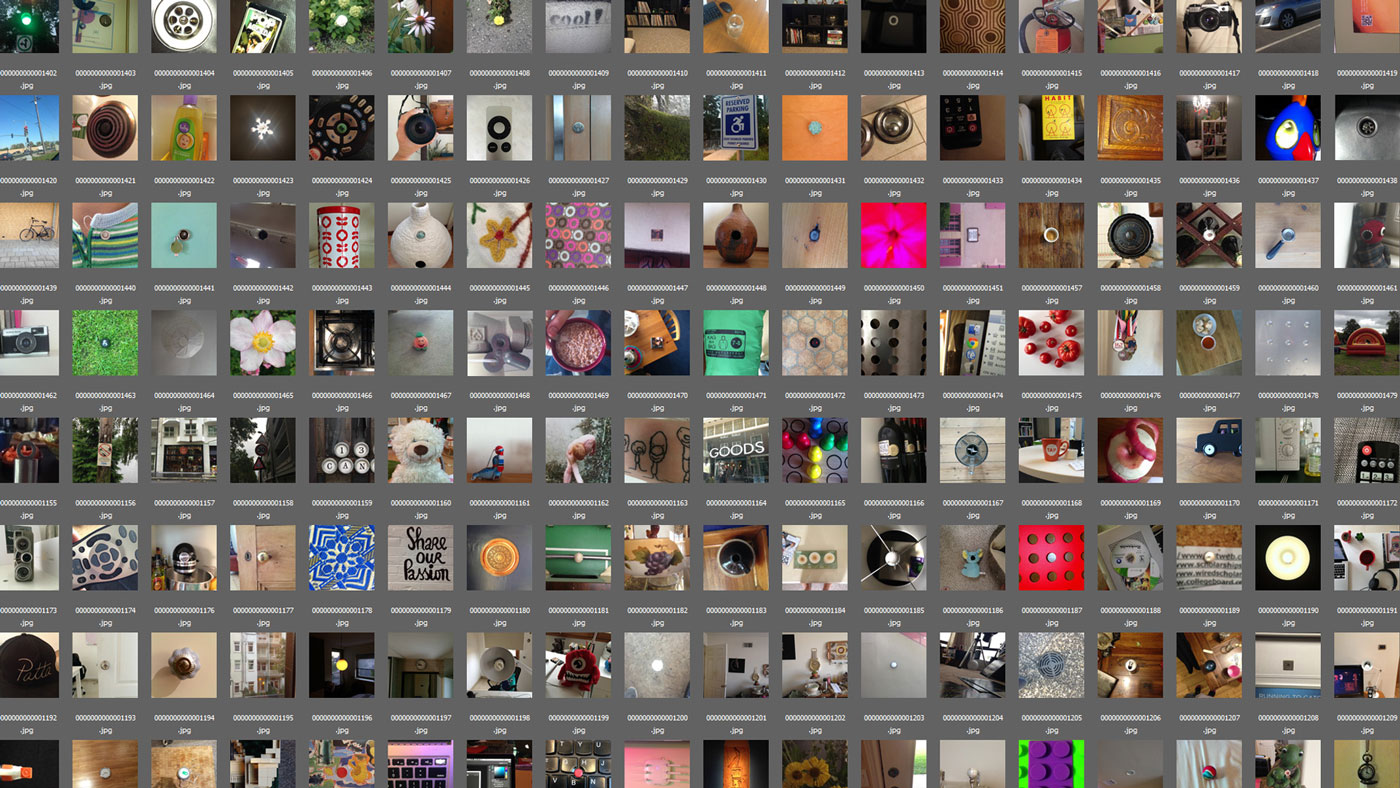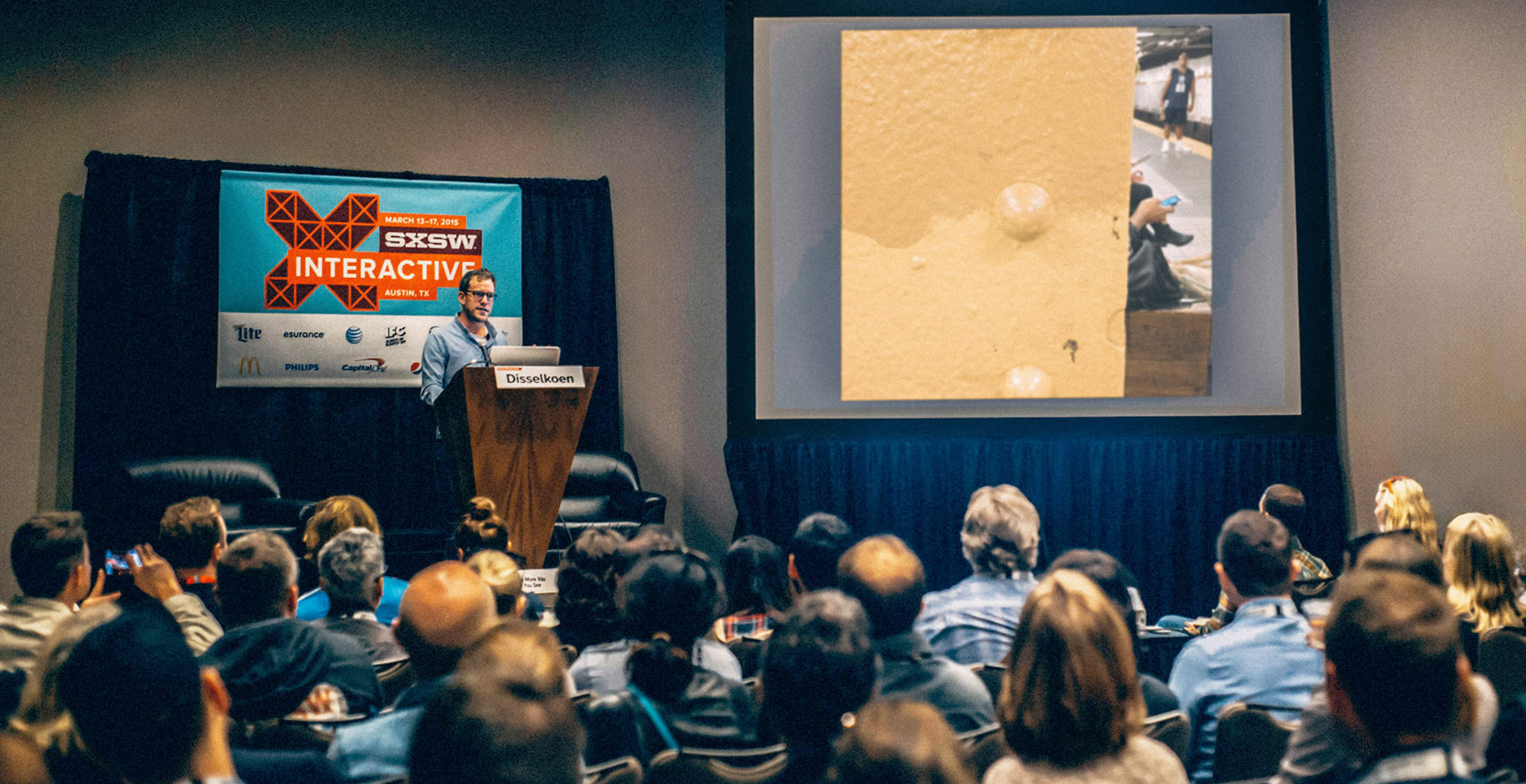


The doors of Salon 3 in the JW Marriott Austin open and people quickly find a place to sit. Most of them on chairs, some need to squat on the carpeted floor. I am invited to speak at SXSW Interactive, a large annual congregation of people interested in design, art and technology.
SXSW has been on for a couple of days now. I’ve heard many topnotch speakers feed their specialist knowledge to a hungry crowd. When I step on stage, I know I won’t speak from a specialist perspective. The contrary.
"Some time ago, Japan was my home. The beauty of being somewhere for the first time is that there’s so much new to see and discover. Like the intersection, I would cross on my way to work. Thousands of people I would probably only see once in my life. People whose lives I knew very little about. Then one day, I thought of using the 47 seconds of green traffic light for what turned into the 'Intersection Interviews'.
It's great to make new discoveries by connecting to our surroundings and the people around us. It makes us feel alive. But as I traveled and explored new places, I noticed a pattern: it was mostly newcomers who seemed to be truly present and attentive. Most people lose interest in exploring over time. And I, too, found myself falling into this pattern.
Back in The Netherlands, I took the same tram, every day. At first, I enjoyed looking out the window and taking in the sights, but soon I didn't think there was anything new to discover.
So, I decided to challenge myself and make the daily commute more interesting for myself and my fellow passengers. I wanted to turn something ordinary into something extraordinary, by creating a new experience out of what had become monotonous.
Sometimes all it takes is a small change to see the most familiar places in a new light. Two stickers, strategically placed, can transform even the most mundane environment into a source of wonder. As we grow used to an experience, our brain pays less attention to it, making it seem unremarkable.
You might accept that our attention is limited, and we can only focus on a small portion of our surroundings at any given time. But it's crucial to not underestimate the full potential of what might feel mundane. This intervention demonstrates how subtle differences in perspective can entirely reshape our perceptions of our environment. Without challenging our viewpoints, we risk becoming stagnant in our thinking and less receptive to the wonders around us.
For a thought experiment: consider the street you live on. It's quite possible that nothing in that street still captures your attention or prompts questions. You take it as is. However, a single street can present a multitude of different experiences for various people, based on their unique perspectives and backgrounds. A biologist might be drawn to the trees and wildlife, while a maintenance engineer could quickly notice a faulty lamppost or a leaking pipe. The same environment provides countless opportunities for exploration and discovery, all depending on the observer.
While there is nothing wrong with focusing on a leaky pipe, to truly understand each other and our surroundings, it's important to embrace diverse perspectives and appreciate the world through different viewpoints. My work aims to offer an imaginative starting point for this exploration.
Familiarity, as well as knowledge, can hinder discovery. In addition to this, technology also plays a role in limiting our experiences. The tram intervention is enjoyed by many people, but there is one group that isn't participating: those absorbed in their phones. As a result, the genuine sense of discovering new perspectives appears increasingly distant for this group. This realisation served as the catalyst for a new idea: I started working on a game on your phone that prompts people to look up from their phone.
Cucalu challenges you to look for circular, square, and triangular shaped objects in your environment. Once you’ve found one, you hold your phone in front of it and a picture is taken. Within Cucalu curiosity is rewarded by your fellow players.
When Cucalu launched, I found it hard to predict how people would use it. Each day, I observed how thousands of individuals worldwide actively started exploring with the device that often blinds you from your environment. The continuously expanding collection of round objects serves as evidence of that.

Every day, I strive to remain curious. Sometimes, I succeed in encouraging others to adopt a similar sense of wonder. This way of thinking involves setting aside time to investigate subjects that aren't necessarily linked to one's profession or everyday tasks.
I don't find it surprising that many of us struggle to maintain curiosity. The demands of our everyday lives and work can be burdensome, making it challenging to prioritise curiosity. It may be tempting to dismiss exploration outside our expertise as unproductive, but I believe it's crucial to continuously nurture and train our curiosity.
Sticking to what we know is easy, but it doesn't help us understand each other or our surroundings. I try to make it simple for us to start exploring new things. By trying new perspectives, we learn more about the world and better understand others. And I think that's truly one of the most rewarding adventures on this... round planet.
